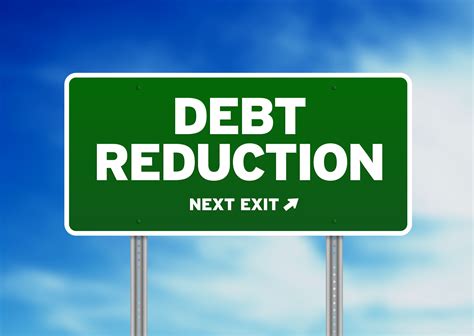
What is Student Debt?
Student debt refers to money that a student borrows to pay for their education and related expenses. This debt typically comes in the form of student loans, which can be obtained from various sources such as the government, private lenders, or the school itself.
The amount of student debt a person owes depends on the type of loan, the interest rate, the length of the loan term, and the amount borrowed. Students may accumulate debt to cover tuition fees, textbooks, housing, transportation, and other expenses related to their education.
After graduation, students are required to start repaying their loans. Failure to make timely payments can result in penalties, including late fees and damage to credit scores. Student debt is a major financial burden for many people, and it can take years or even decades to pay off.
Why does it take so long to pay off student debt?
There are several reasons why it can take a long time to pay off student debt:
- High loan balances: Many students accumulate significant debt while pursuing higher education. This high balance, coupled with the interest that accrues over time, can make it challenging to pay off the loan quickly.
- Interest rates: Student loans often have high interest rates, which means that a significant portion of each payment goes towards interest rather than reducing the loan balance.
- Lengthy repayment terms: Repayment terms for student loans can range from 10 to 25 years, depending on the type of loan and the repayment plan chosen. Longer repayment terms mean lower monthly payments, but also means more interest paid over the life of the loan.
- Underemployment: Graduating students may struggle to find a job that pays enough to cover living expenses and student loan payments, leading to slower repayment progress.
- Economic hardship: Economic downturns or personal financial hardships can make it challenging to keep up with student loan payments, resulting in extended repayment periods.
The combination of high loan balances, high interest rates, lengthy repayment terms, underemployment, and economic hardship can make it difficult for borrowers to pay off their student debt quickly. It is important to have a repayment plan in place and to make consistent payments to reduce the overall debt burden over time.
Why do people get into Student Debt?
People get into student debt to finance their education and related expenses. Pursuing higher education can be expensive, and many people cannot afford to pay for it out of pocket. Therefore, they turn to student loans to cover the cost of tuition, textbooks, housing, transportation, and other expenses.
There are several reasons why people choose to take on student debt:
- Higher education: Many people believe that higher education is necessary to secure a well-paying job and advance their career. Therefore, they are willing to take on student debt to finance their education.
- Limited financial resources: Not everyone has the financial resources to pay for higher education out of pocket. For many, student loans are the only way to finance their education.
- Limited scholarships or grants: While scholarships and grants can help reduce the cost of higher education, they may not cover the full cost of attendance. Student loans may be necessary to fill the gap.
- Parental financial support: Some students may have parents who are unable or unwilling to help pay for their education, leaving them with no choice but to take on student debt.
- Career changes or advancement: Some people take on student debt to pursue a career change or advance their current career. This may require additional education or training that they cannot afford without taking out student loans.
People get into student debt to finance their education and related expenses, particularly when they have limited financial resources or need additional education or training to advance their careers.
What is the normal interest rate for Student Debt?
The normal interest rate for student debt varies depending on the type of loan and whether it is a federal or private loan.
For federal loans, the interest rate is set by the government and can change from year to year. The interest rates for federal student loans disbursed from July 1, 2021, to June 30, 2022, are as follows:
- Direct Subsidized and Unsubsidized Loans for undergraduate students: 3.73%
- Direct Unsubsidized Loans for graduate students: 5.28%
- Direct PLUS Loans for graduate students and parents: 6.28%
For private loans, the interest rate is set by the lender and can vary based on factors such as the borrower’s credit score, income, and repayment term. Private student loans typically have higher interest rates than federal loans and may be variable or fixed.
It is important to shop around and compare interest rates from different lenders before taking out a private student loan. Borrowers may also consider refinancing their student loans to potentially secure a lower interest rate and reduce their monthly payments.

What if you can’t pay back your student debt?
If you are struggling to pay back your student debt, there are several options available to help you manage your debt:
- Income-driven repayment plans: Federal student loans offer income-driven repayment plans that allow you to make payments based on your income and family size. These plans can help lower your monthly payments and may result in loan forgiveness after a certain period of time.
- Deferment or forbearance: You may be eligible for deferment or forbearance if you are experiencing financial hardship, such as unemployment or illness. During this time, you may be able to temporarily stop making payments or reduce your monthly payments.
- Loan consolidation: You may be able to consolidate your federal student loans into one loan with a single monthly payment. This can help simplify your payments and potentially lower your interest rate.
- Loan forgiveness: There are several loan forgiveness programs available for certain professions, such as public service or teaching. These programs can result in a portion or all of your student loans being forgiven.
If you have private student loans, you may have fewer options for managing your debt. However, you can still contact your lender to see if they offer any repayment assistance programs or options for temporary relief.
It is important to communicate with your loan servicer if you are having trouble making payments. Defaulting on your student loans can have serious consequences, such as damage to your credit score, wage garnishment, and even legal action.

Is student debt worth the cost?
The value of student debt depends on various factors, such as the individual’s personal financial situation, career goals, and the cost and quality of education. For many people, student debt is worth the cost because it allows them to pursue higher education and increase their earning potential over time. However, this is not always the case.
Here are some factors to consider when deciding if student debt is worth the cost:
- Return on investment: Consider the potential earning potential of the degree or program you are pursuing. Will it provide you with the necessary skills and knowledge to secure a well-paying job and advance your career?
- Cost of attendance: Consider the cost of tuition, fees, and other expenses associated with the degree or program. Will the potential increase in earning potential justify the cost of attendance and the debt that comes with it?
- Repayment terms: Consider the repayment terms and interest rates associated with the student loans. Will you be able to make your monthly payments and pay off your debt in a reasonable amount of time?
- Personal financial situation: Consider your personal financial situation, including your income, expenses, and savings. Will you be able to manage your student debt while still maintaining a comfortable standard of living?
Student debt can be worth the cost if it helps you pursue higher education and increase your earning potential. However, it is important to carefully consider the potential return on investment, cost of attendance, repayment terms, and personal financial situation before taking on student debt.
